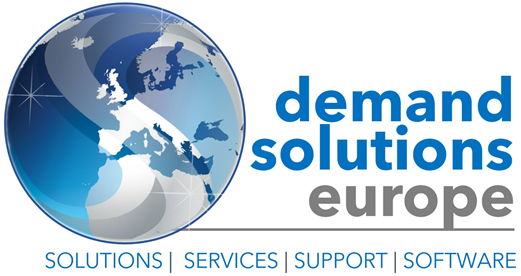
Innovations Revolutionising Supply Chain Planning: Unlocking Efficiency and Agility
Supply chain planning is an integral part of any business that deals with the production and distribution of goods. It involves the coordination of various activities such as procurement, production, inventory management, and logistics to ensure that products are delivered to customers on time and at the lowest possible cost. In this article, we will discuss the importance of supply chain planning, the challenges associated with it, and some of the innovative solutions that are being used to overcome these challenges.
The Importance of Supply Chain Planning
Effective supply chain planning is crucial to the success of any business that relies on the timely delivery of products to customers. It helps companies optimize their supply chain operations by identifying areas of inefficiency and implementing strategies to improve them. Some of the key benefits of supply chain planning include:
Cost Reduction
By optimizing inventory levels, improving transportation efficiency, and reducing waste, effective supply chain planning can help companies reduce their operating costs. This, in turn, can increase their profitability and help them remain competitive in the marketplace.
Improved Customer Service
Supply chain planning helps companies deliver products to customers on time and at the lowest possible cost. This improves customer satisfaction and helps to build customer loyalty.
Increased Efficiency
By optimizing their supply chain operations, companies can increase their efficiency and reduce the time it takes to deliver products to customers. This can help to improve their competitive advantage and increase their market share.
Challenges Associated with Supply Chain Planning
While supply chain planning offers many benefits, there are also several challenges associated with it. Some of the key challenges include:
Lack of Visibility
One of the biggest challenges associated with supply chain planning is the lack of visibility into the supply chain. This can make it difficult for companies to identify bottlenecks and inefficiencies in their operations.
Complexity
Supply chain planning can be complex, particularly for companies that operate in multiple countries or regions. This complexity can make it difficult to coordinate activities across the supply chain.
Changing Customer Demands
Customer demands are constantly changing, and companies need to be able to adapt to these changes quickly. This can be challenging for companies that have long lead times or that rely on complex supply chain networks.
Environmental Concerns
With increasing awareness of climate change and environmental issues, companies are under pressure to reduce their carbon footprint and adopt sustainable practices. This can be challenging for companies that operate in industries with high emissions or that rely on fossil fuels.
Innovative Solutions for Supply Chain Planning
Supply chain planning is indeed a critical aspect of any business’s success, ensuring the seamless flow of goods and services from production to the end consumer. As the global marketplace becomes increasingly complex and customer expectations evolve, traditional supply chain planning approaches often struggle to keep up. However, the advent of innovative technologies and methodologies has opened up new possibilities for optimizing and streamlining supply chain operations.
So, what are the top 5 cutting-edge solutions that are transforming the landscape of supply chain planning, enabling businesses to enhance efficiency, reduce costs, and stay ahead of the competition?
1. Artificial Intelligence and Machine Learning
One of the most revolutionary advancements in supply chain planning is the integration of artificial intelligence (AI) and machine learning (ML) technologies. These powerful tools empower businesses to make data-driven decisions, improve forecasting accuracy, and optimize inventory management. By analyzing vast amounts of historical and real-time data, AI and ML algorithms can identify patterns, detect anomalies, and generate accurate demand forecasts. Additionally, AI-powered systems can automate repetitive tasks, such as demand planning and order fulfillment, freeing up valuable time for supply chain professionals to focus on strategic initiatives.
2. Internet of Things (IoT) and Sensor Technology
The Internet of Things (IoT) and sensor technology have emerged as game-changers in the realm of supply chain planning. With IoT-enabled devices and sensors embedded in products, containers, and vehicles, businesses gain real-time visibility into their supply chain processes. This real-time data provides valuable insights into inventory levels, transportation conditions, and potential bottlenecks. By leveraging this information, organizations can proactively identify issues, optimize route planning, and enhance overall supply chain efficiency. Moreover, IoT and sensor technology enable end-to-end traceability, ensuring transparency and accountability throughout the supply chain.
3. Blockchain and Distributed Ledger Technology
Blockchain technology, known for its decentralized and immutable nature, is increasingly finding applications in supply chain planning. By providing a transparent and secure platform for recording and verifying transactions, blockchain enhances trust and collaboration among supply chain partners. Smart contracts, powered by blockchain, can automate and enforce agreements, reducing delays and disputes. Additionally, blockchain enables traceability by creating an immutable record of each transaction and movement of goods, allowing businesses to mitigate risks, combat counterfeiting, and ensure regulatory compliance. By creating a secure and transparent ledger of transactions, companies can track products from the point of origin to the point of delivery, ensuring that they are delivered to customers in a timely and efficient manner.
4. Advanced Analytics and Predictive Modeling
The integration of advanced analytics and predictive modeling techniques empowers organizations to make more informed decisions and optimize their supply chain planning. By leveraging historical data and statistical algorithms, businesses can simulate various scenarios, perform what-if analyses, and optimize their inventory levels, production schedules, and transportation routes. Predictive models can anticipate demand fluctuations, identify potential supply chain disruptions, and enable proactive risk management. These insights enable businesses to respond swiftly to changing market dynamics and ensure a higher level of customer satisfaction. Combined with artificial intelligence and machine learning, they are being used to optimize supply chain operations by predicting demand, optimizing inventory levels, and improving transportation efficiency.
5. Collaborative Planning and Execution
Successful supply chain planning requires collaboration and coordination among all stakeholders involved. Collaborative planning and execution platforms provide a centralized hub where suppliers, manufacturers, distributors, and retailers can share information, synchronize their activities, and align their plans. By fostering real-time communication, collaboration platforms enable swift decision-making, minimize delays, and reduce excess inventory. These platforms facilitate end-to-end visibility, enabling businesses to respond rapidly to changing customer demands and market conditions.
Additionally, supply chain visibility tools provide companies with real-time visibility into their supply chain operations. They rely on technological solutions that provide real-time insights and transparency into the various stages and activities within a supply chain. Such tools enable organizations to track and monitor the movement of goods, information, and finances across the entire supply chain network, from suppliers to end customers. By leveraging data from multiple sources such as enterprise resource planning (ERP) systems, transportation management systems (TMS), warehouse management systems (WMS), and IoT devices, supply chain visibility tools offer a centralized platform to monitor and analyze key performance indicators (KPIs). This visibility allows businesses to make data-driven decisions, identify bottlenecks and inefficiencies, mitigate risks, take corrective action quickly, and optimize supply chain operations.
Companies are also adopting sustainable practices such as using renewable energy, reducing waste, and implementing circular economy models to reduce their carbon footprint and minimize their impact on the environment.
Effective supply chain planning is essential for companies that rely on the timely delivery of products to customers. While there are some challenges associated with supply chain planning, innovation is reshaping the landscape of supply chain planning, empowering organizations to overcome traditional limitations and achieve unprecedented efficiency and agility. The integration of AI, ML, IoT, blockchain, advanced analytics, and collaborative platforms is revolutionizing the way supply chains are planned, executed, and optimized. These innovative solutions enable businesses to achieve a competitive edge by enhancing operational efficiency, reducing costs, and delivering superior customer experiences.
And as organizations embrace these groundbreaking technologies and methodologies, it is crucial to approach their implementation strategically. Here are some key considerations to maximize the benefits of innovative supply chain planning solutions:
- Data Integration and Quality: Ensure seamless integration of data from various sources across the supply chain to enable accurate forecasting and decision-making. Clean and reliable data is essential for the success of AI, ML, and advanced analytics applications.
- Change Management: Implementing new technologies and processes requires organizational buy-in and a culture that embraces innovation. Proactively communicate the benefits and train employees to adapt to the new systems and methodologies effectively.
- Scalability and Flexibility: Choose solutions that can scale with your business’s growth and adapt to evolving market dynamics. The ability to integrate new technologies seamlessly and modify strategies is crucial for long-term success.
- Security and Privacy: As supply chains become more interconnected, prioritize robust cybersecurity measures and protect sensitive data. Implement blockchain technology to enhance data integrity and secure transactions within the supply chain ecosystem.
- Continuous Improvement: Embrace a culture of continuous improvement by leveraging real-time data and feedback loops. Monitor key performance indicators (KPIs) and leverage insights to identify bottlenecks, inefficiencies, and areas for optimization.
In conclusion, the integration of innovative solutions is reshaping supply chain planning, empowering businesses to achieve unprecedented levels of efficiency, agility, and customer satisfaction. By harnessing the power of AI, ML, IoT, blockchain, advanced analytics, and collaboration platforms, organizations can navigate the complexities of today’s global marketplace with confidence. Embrace these technologies strategically, keeping in mind the importance of data integration, change management, scalability, security, and continuous improvement. Stay at the forefront of supply chain planning innovation and unlock new opportunities for growth, resilience, and success.


